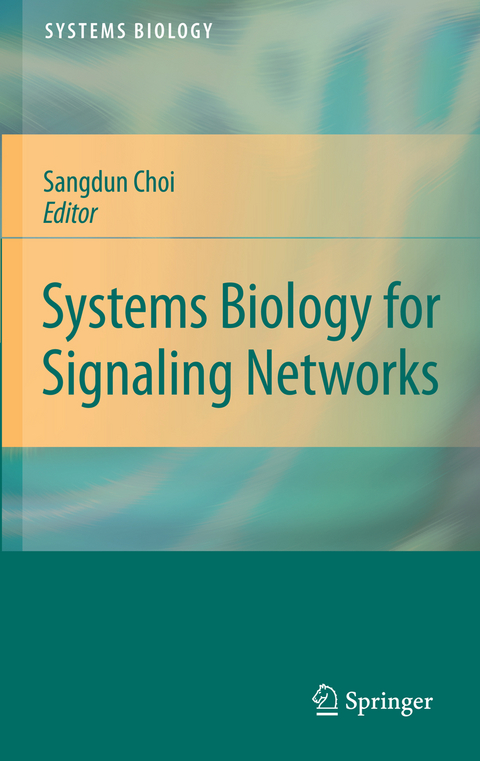
Systems Biology for Signaling Networks
Springer-Verlag New York Inc.
978-1-4939-3962-6 (ISBN)
Concepts.- Systems Biology Approaches: Solving New Puzzles in a Symphonic Manner.- Current Progress in Static and Dynamic Modeling of Biological Networks.- Getting Started in Biological Pathway Construction.- From Microarray to Biology.- Modeling and Reconstruction.- Computational Procedures for Model Identification.- Assembly of Logic-Based Diagrams of Biological Pathways.- Automating Mathematical Modeling of Biochemical Reaction Networks.- Strategies to Investigate Signal Transduction Pathways with Mathematical Modelling.- Inferring Transcriptional Regulatory Network.- Finding Functional Modules.- Modeling the Dynamics of Biological Networks from Time Course Data.- Decision Making in Cells.- Robustness of Neural Network Models.- Functional Modules in Protein–Protein Interaction Networks.- Mixture Model on Graphs: A Probabilistic Model for Network-Based Analysis of Proteomic Data.- Integration of Network Information for Protein Function Prediction.- Applications for Signaling Networks.- Cellular-Level Gene Regulatory Networks: Their Derivation and Properties.- Tyrosine-Phosphoproteome Dynamics.- Systems Biology of the MAPK1,2 Network.- Pathway Crosstalk Network.- Crosstalk Between Mitogen-Activated Protein Kinase and Phosphoinositide-3 Kinase Signaling Pathways in Development and Disease.- Systems-Level Analyses of the Mammalian Innate Immune Response.- Molecular Basis of Protective Anti-Inflammatory Signalling by Cyclic AMP in the Vascular Endothelium.- Construction of Cancer-Perturbed Protein–Protein Interaction Network of Apoptosis for Drug Target Discovery.- Transcriptional Changes in Alzheimer’s Disease.- Pathogenesis of Obesity-Related Chronic Liver Diseases as the Study Case for the Systems Biology.- The Evolving Transcriptome of Head and Neck SquamousCell Carcinoma.- Peptide Microarrays for a Network Analysis of Changes in Molecular Interactions in Cellular Signalling.- Tools for Systems Biology.- A Primer on Modular Mass-Action Modelling with CellML.- FERN – Stochastic Simulation and Evaluation of Reaction Networks.- Programming Biology in BlenX.- Discrete Modelling: Petri Net and Logical Approaches.- ProteoLens: A Database-Driven Visual Data Mining Tool for Network Biology.- MADNet: A Web Server for Contextual Analysis and Visualization of High-Throughput Experiments.- Erratum to: Functional Modules in Protein–Protein Interaction Networks.
| Erscheinungsdatum | 18.08.2022 |
|---|---|
| Reihe/Serie | Systems Biology |
| Zusatzinfo | XVI, 908 p. |
| Verlagsort | New York |
| Sprache | englisch |
| Maße | 155 x 235 mm |
| Themenwelt | Mathematik / Informatik ► Informatik ► Theorie / Studium |
| Studium ► 2. Studienabschnitt (Klinik) ► Humangenetik | |
| Studium ► Querschnittsbereiche ► Infektiologie / Immunologie | |
| Naturwissenschaften ► Biologie ► Genetik / Molekularbiologie | |
| Naturwissenschaften ► Biologie ► Mikrobiologie / Immunologie | |
| Naturwissenschaften ► Biologie ► Zellbiologie | |
| Schlagworte | Data Mining • Endoplasmatisches Reticulum • gene expression • genes • Genetics • Genome • microarray • Molecular Biology • signal transduction • transcription |
| ISBN-10 | 1-4939-3962-9 / 1493939629 |
| ISBN-13 | 978-1-4939-3962-6 / 9781493939626 |
| Zustand | Neuware |
| Haben Sie eine Frage zum Produkt? |
aus dem Bereich


